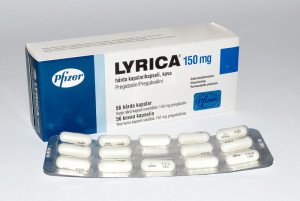 Lyrica is a relatively powerful drug used to treat nerve pain. Also known as “pregabalin”, which is the generic term, Lyrica is a precurser to the drug Gabapentin AKA neurontin. What I mean by this is that Lyrica converts to Neurontin inside the body, but with much more potent effects.
Lyrica is a relatively powerful drug used to treat nerve pain. Also known as “pregabalin”, which is the generic term, Lyrica is a precurser to the drug Gabapentin AKA neurontin. What I mean by this is that Lyrica converts to Neurontin inside the body, but with much more potent effects.
We’ve known for a long time about using lyrica for opiate withdrawal. Many smart doctors will prescribe Lyrica to opiate abusers, since it has been shown in a few studies to reduce the pain caused by opiate withdrawal. I know a lot of people who have great success using Lyrica/pregabalin for their opiate withdrawals, and some say that it takes away the pain COMPLETELY!
Lyrica is in the category of drugs known as anticonvulsants. It reduces pain by decreasing the amount of signals which are transmitted by damaged nerves. Lyrica targets the central nervous system, and therefore can result in feeling “slow”, along with relaxed and care free. Lyrica does have a potential for abuse, so you should only use it under supervision from a doctor and only while you are in the first stages of withdrawal.
Lyrica for Opiate Withdrawal Dosage
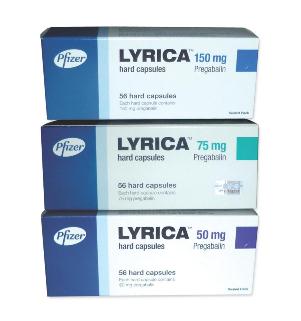 Using Lyrica for opiate withdrawal is incredibly easy, providing you can get a prescription from your doctor. We recommend around 100mg, 3 times a day. However, your doctor will be able to recommend what is right for you. You should also stop using all opiates before going to see your doctor, as lyica can have some complications if you are still actively getting high. You should not need to taper if you only take Lyrica for the first week of opiate withdrawals. Prolonged use requires you to slowly come off.
Using Lyrica for opiate withdrawal is incredibly easy, providing you can get a prescription from your doctor. We recommend around 100mg, 3 times a day. However, your doctor will be able to recommend what is right for you. You should also stop using all opiates before going to see your doctor, as lyica can have some complications if you are still actively getting high. You should not need to taper if you only take Lyrica for the first week of opiate withdrawals. Prolonged use requires you to slowly come off.
Things to Remember
Talk to your doctor about any previous medical issues before they give you a prescription, this minimises the chance of any complications. Long term use is not recommended. Although Lyrica is hard to abuse; it is possible to become dependent on it.
After taking Lyrica for opiate withdrawals, it’s very key to switch to a non-narcotic remedy to smooth your transition into sobriety. Consider CalmSupport. It is all natural, and was designed to eliminate opiate withdrawal symptoms. Don’t take lyrica and CalmSupport together! It can be dangerous.
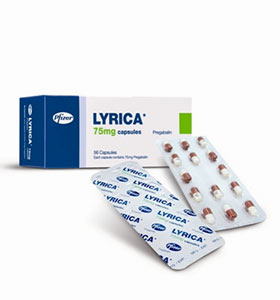 Side Effects of Lyrica
Side Effects of Lyrica
While rare side effects, are extremely rare – they are still worth knowing. As you do have a slim chance of incurring them, and you need to make sure you are prepared for them.
Common side effects include:
- Swelling
- Blurred Vision
- Clumsiness
- Confusion
- Constipation
- Loss of memory
- Painful Urination
- Rapid Weight Gain
- Dementia
- Delusions
- Burning Sensation
- Accidental Injury
- Loss of Balance
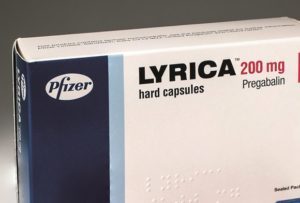 The side effects listed above may seem pretty extreme, after all – you don’t want dementia. The lucky truth is, that these are still pretty rare. Overall, Lyrica/Pregabalin is an extremely safe drug, with little to no side effects occurring with the majority of users.
The side effects listed above may seem pretty extreme, after all – you don’t want dementia. The lucky truth is, that these are still pretty rare. Overall, Lyrica/Pregabalin is an extremely safe drug, with little to no side effects occurring with the majority of users.
Always contact your doctor regarding any medical conditions, or past complications along with any known illnesses or allergies that you have, as this will allow your doctor to make sure that Lyrica is safe for you to use.
You should also research how Pregabalin/Lyrica interacts with other drugs, as there are a total of 611 drugs that it is known to interact with, with 6 major drug interactions.
Major Drug Interactions
- Acetaminophen
- Buprenorphine
- Propoxyphene
- Sodium Oxybate
- Aspirin
- Caffeine
- Nalaxone
If you take any drugs which contain any of the above generic substances, then you should not use Lyrica. However, your doctor should be able to confirm whether it is safe or not for you to use Lyrica when you go for a prescription.
How to Get The Most Out of Lyrica for Opiate Withdrawal
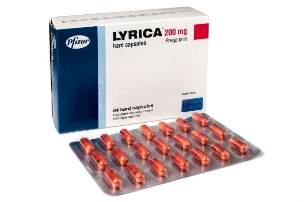 There are many ways to get the most out of your opiate withdrawal treatment. We recommend quickly tapering off of lyrica, and starting a regimen of natural supplements to speed your recovery. Such supplements include Vitamin C, Valerian Root, St. Johns Wort, and others. There natural remedies can do a lot to reduce your symptoms, and they are not addicting.
There are many ways to get the most out of your opiate withdrawal treatment. We recommend quickly tapering off of lyrica, and starting a regimen of natural supplements to speed your recovery. Such supplements include Vitamin C, Valerian Root, St. Johns Wort, and others. There natural remedies can do a lot to reduce your symptoms, and they are not addicting.
Instead of buying all of these natural supplements separately, you can always opt to pick up a supplement called CalmSupport. It includes all of these ingredients, along with many others such as Kava, and it can completely eliminate the remaining of your opiate withdrawal symptoms. It’s inexpensive, easy to take (just two caps at a time), and provides instant relief of 95% of symptoms. You can get a bottle here. Use it the day you stop using lyrica for opiate wtihdrawal and continue using it until the bottle is gone. You will feel a million times better!
If you relapse, there is no need to worry. Simply get yourself back on track as soon as you can, and ask for support from a friend or a professional. They will be able to reassure you and make sure you are doing well throughout the treatment. Just think about how much better your life could be if you weren’t addicted to opiates, and use that motivation to drive yourself through the withdrawal symptoms. Best of luck, my friend!
